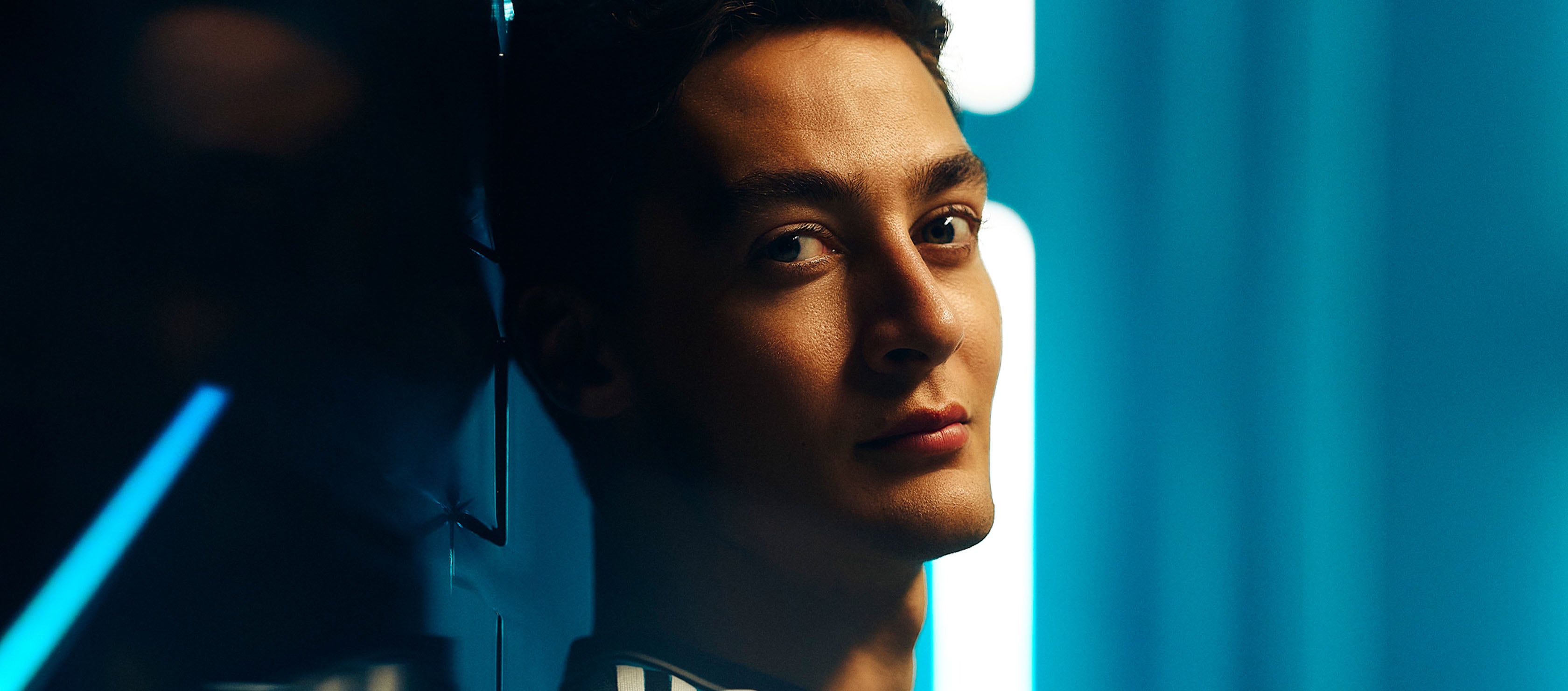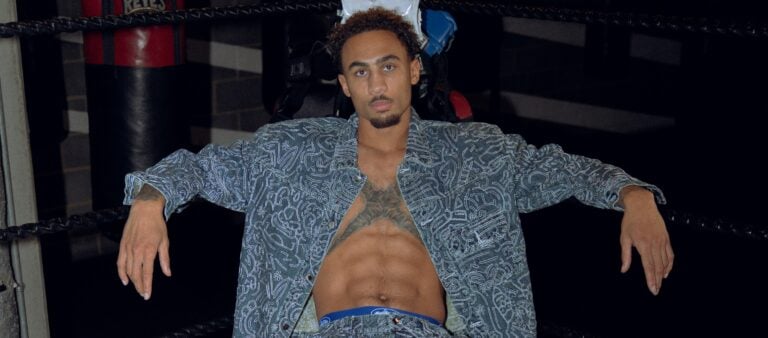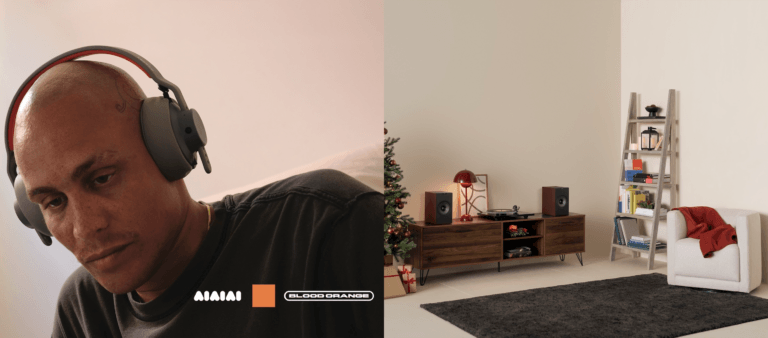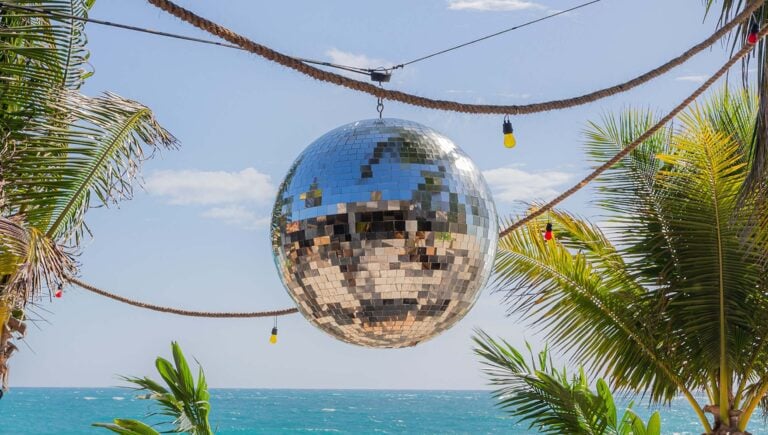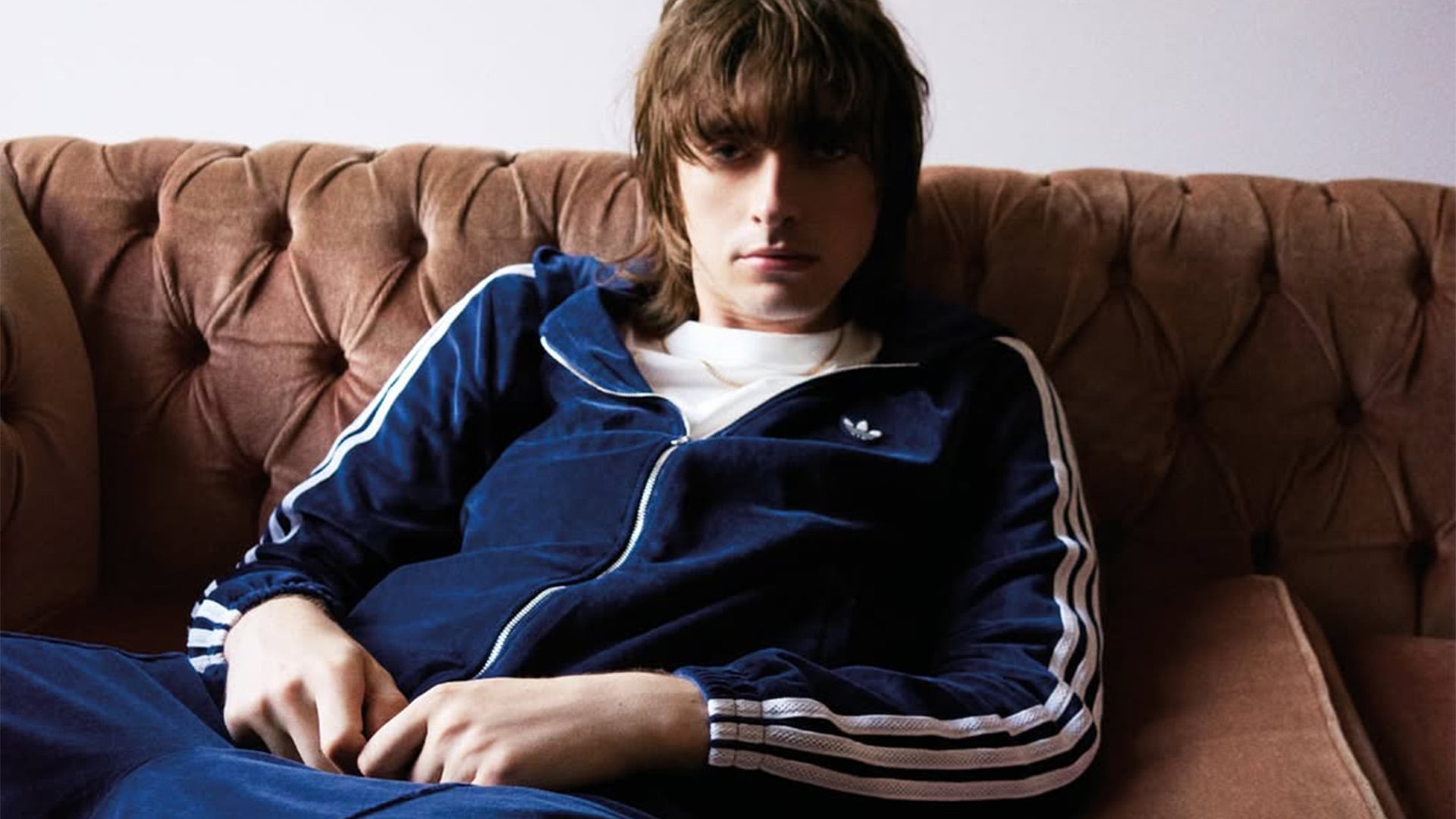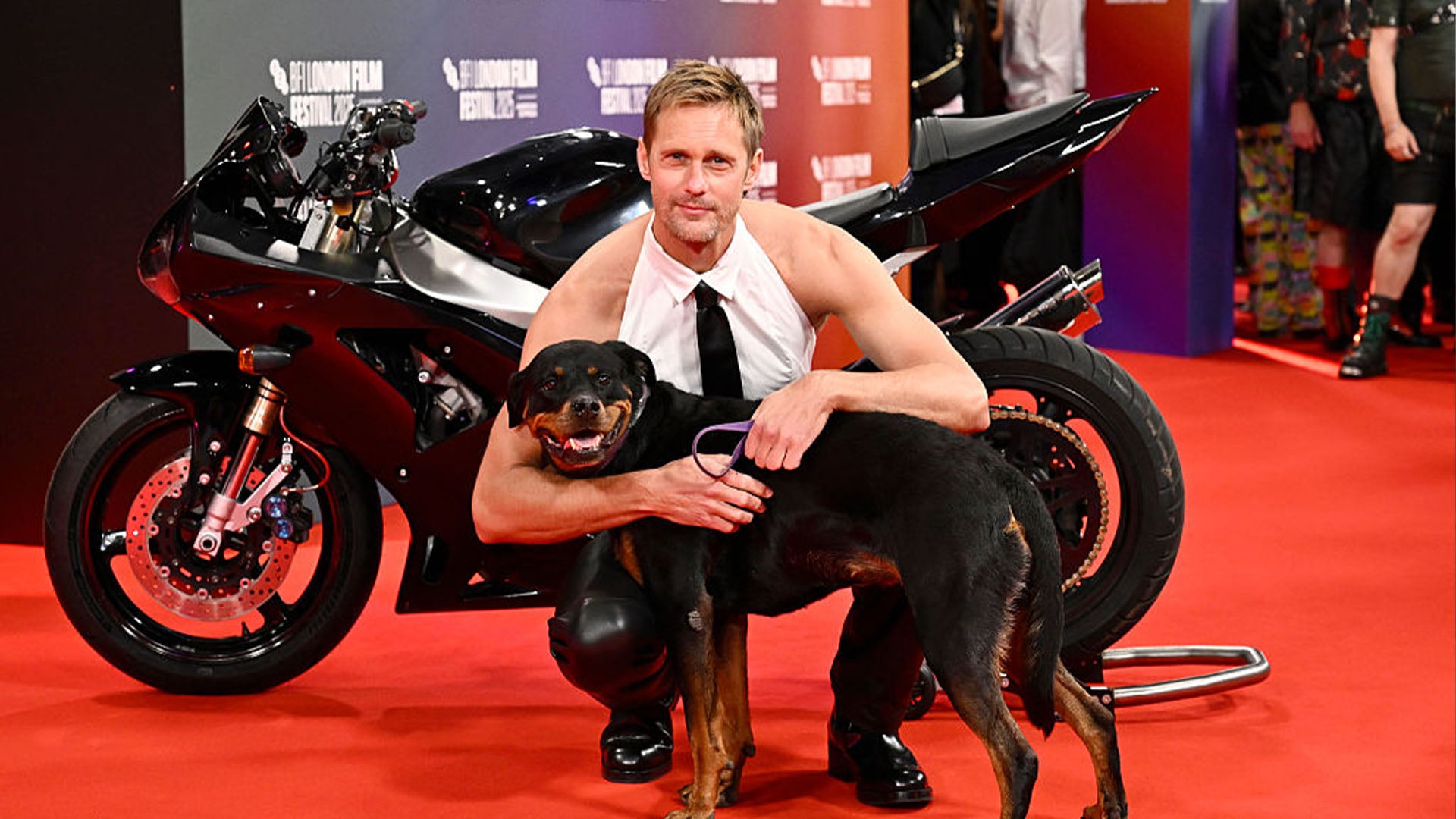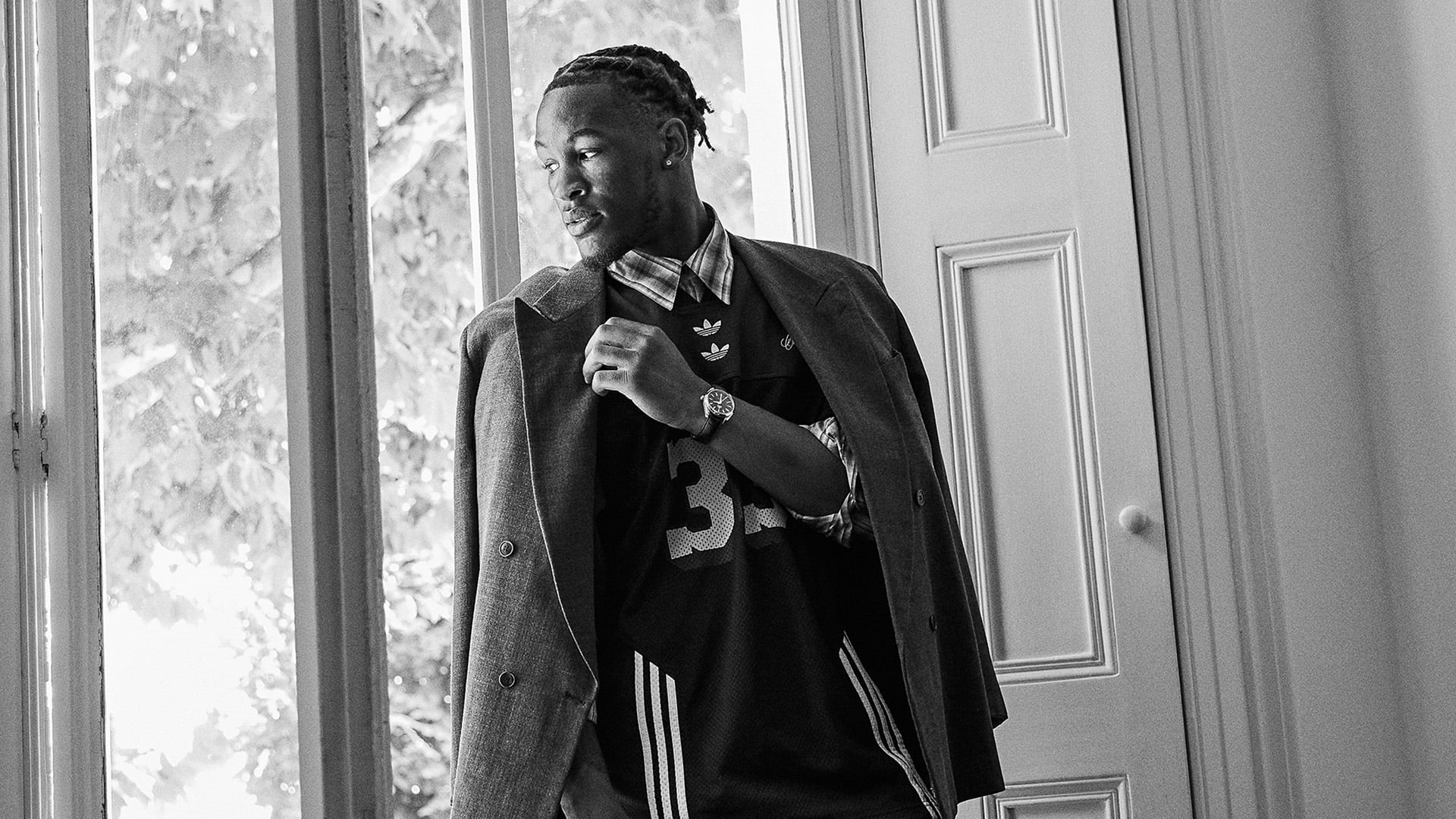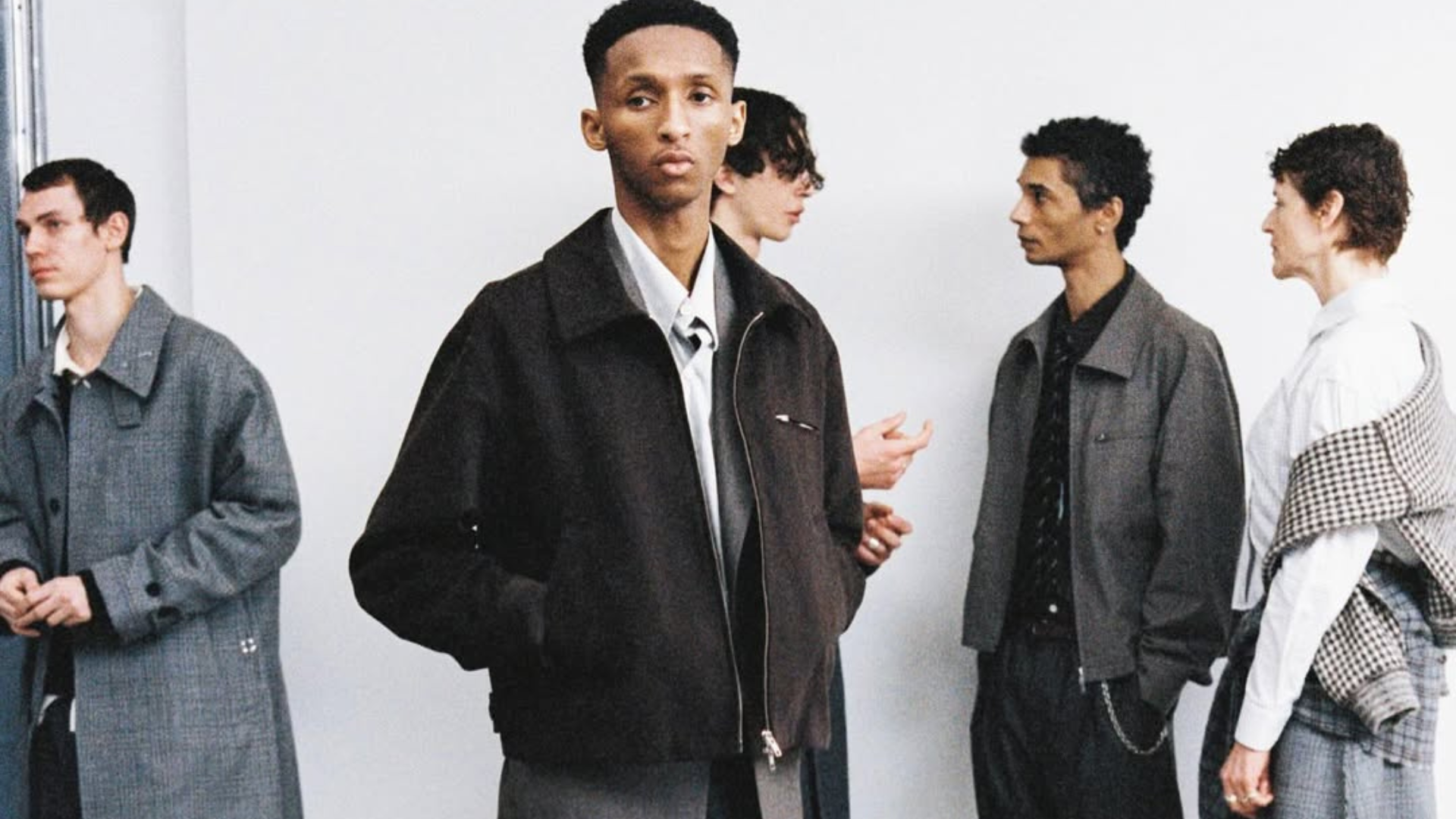For the F1 driver, the right hotel is as vital as the right set-up. Between races, Marriott Bonvoy provides the comfort and calm that keeps the Mercedes driver performing at his peak.
George Russell has been resting. Not a state of being you’d usually associate with a Formula 1 driver – athletes who seem to bend the very laws of physics at will. But when your day job involves circling the globe at 200mph, a little breathing room becomes essential. For Russell, headspace in the rare moments of respite is what allows him to shift into a higher gear when it matters most.
In August, when Russell speaks to Man About Town, the sport is soon to be uncharacteristically quiet. Not because of a lack of adrenaline reserves – 24 races a year guarantee at least two weekends a month spent perched on the sofa, heart racing, peering through fingers at the TV. Instead, the hush comes from F1’s mandated two-week summer shutdown, when the circus finally powers down. Breaks like these are few and far between in a championship that stretches from February to November, and only grows busier each season. Russell, a Mercedes-AMG PETRONAS F1 driver since 2022, has racked up 21 career podiums and four wins in that relentless calendar. He is the archetype of the modern Formula 1 athlete: technically brilliant, physically sharp, and mentally unshakable. Yet what happens off track is just as vital. After all, Formula 1 today is more than sport – it’s a global, cultural, technological, and entertainment phenomenon.
Each car is a laboratory on wheels, a crucible of innovation. And to thrive in this high-octane world, followed by over 826 million fans worldwide – according to Nielsen Sports – Russell must balance intensity with recovery. Knowing when to disconnect is as important as knowing when to push. That means knowing when it’s time to switch off, recharge, and come back fighting.
It’s in Austria that we connect with the Mercedes leading man, just three races away from the season’s pause. His schedule is as complex as an F1 steering wheel – Russell’s already focused on the back half of the season, a stretch he intends to own. However, for the ten minutes we chat, it’s life outside the fast lane that’s first in focus. The importance of slowing down in order to speed up – particularly with the support of Marriott Bonvoy, The Official Hotel Loyalty Programme of the Mercedes-AMG PETRONAS F1 Team.
In conversation with Man About Town, the British driver proves that even when he’s off grid, he’s well and truly controlling the pace.
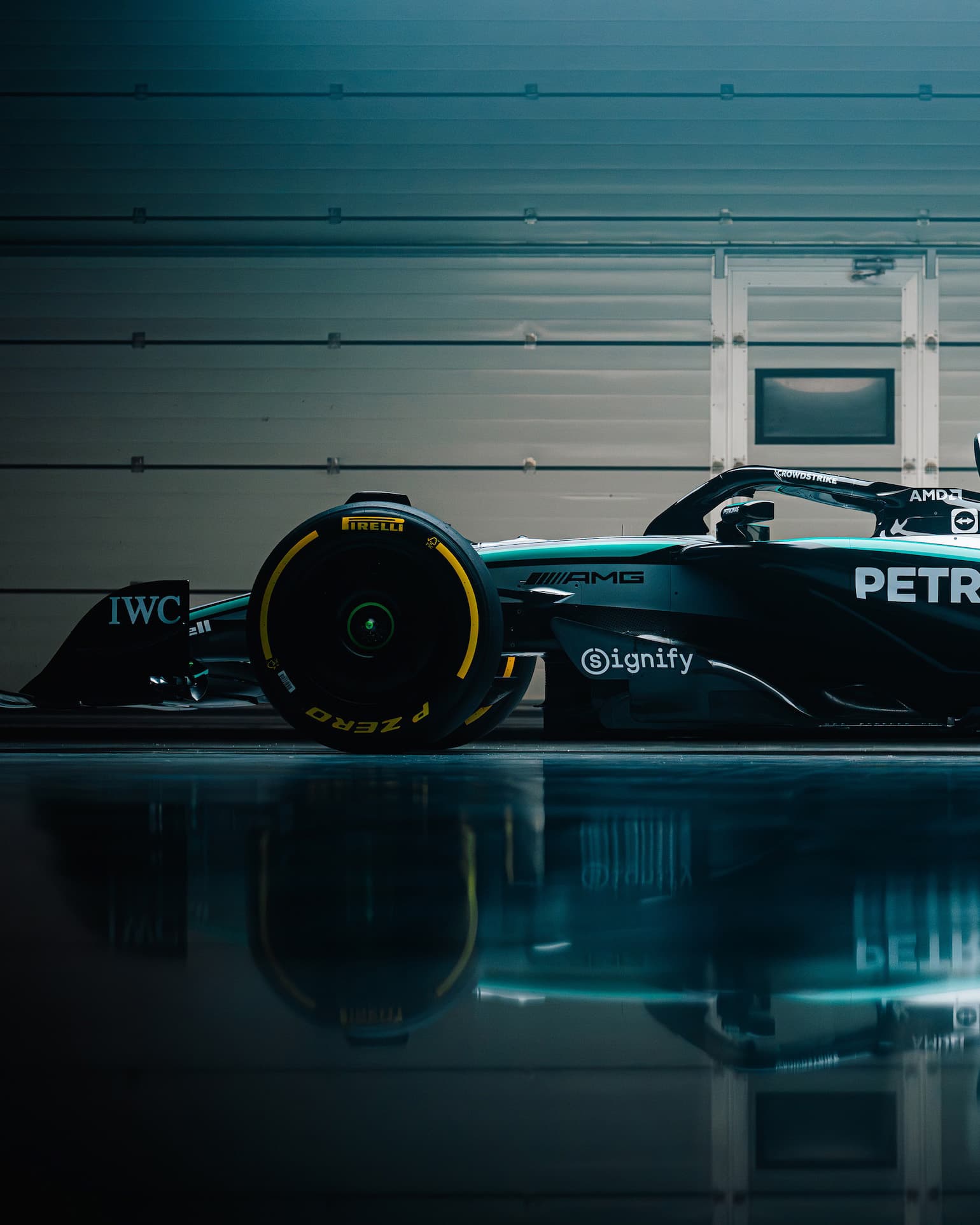
Scarlett Baker: Huge congratulations on your win in Canada this season, George. As you’re looking out at the rest of the season ahead, do you hold onto these victories? Does each victory feel different?
George Russell: It does feel different, to be honest, every victory [is never the same], because they’re happening in different circumstances. For example, the victory I had in Austria last year was very unexpected because four laps to go, Verstappen and Norris crashed, and then suddenly it’s like a present was gifted to you from nowhere – that was like a massive elation. Races such as Vegas were really special because it was a long season. It was one of the last races of the year. Vegas is probably in the top three for all drivers. That was sort of insane to win there. And then in Canada, I probably stood there with more pride, as opposed to pure elation, because I knew we could win when we had the car [for it]. This was our very first weekend of the year when the car was competitive enough for pole position. I stood on the podium, looking at my whole team, like, ‘Yeah, we did that, and I knew we could do that.’ That was more a feeling of confirmation of what we can achieve.
SB: How do you stay motivated through such a long season with 24 races in the calendar?
GR: The chance of victory. You go into every race not really knowing what your chances are going to be. You know roughly where you might end up, but there’s always an opportunity. We have 24 opportunities per season to stand on the podium. If you have a bad race, you’ve got to go out and put in another to rectify it. And, in all honesty, we’re stuck in this groove. I don’t feel like I have the time to be demotivated, because after every race day I fly back, probably have half a day off on Monday to recover, and then I’m straight back into the gym, in meetings with my team, in the simulator, back in the gym again, sponsor events. Before you know it, I’m back at a race, ready to kill it again.
SB: Does that mean you’re constantly looking forward and living in the moment?
GR: Yeah. I only ever look backwards to improve the future.
SB: You’re spanning the globe with this intensive race calendar. When you’re landing in these new cities, what’s the first thing you want to do when you touch down?
GR: Our schedule may not always be as glamorous because changing time zones is a bit tough. Ultimately, we’re going from airport to hotel, circuit to hotel and so on and then back to the airport. It’s only the races outside of Europe that we perhaps get one day earlier because of time zone shifts. I always love to go for a run to clear my head after a long flight. I always like eating in the hotel too, and the hotels are always really accommodating in finding nice, quiet spots for us. The world of Formula 1 is pretty crazy in every race we go to because the sport is so huge now, people are everywhere. But I always like to have dinner in the hotel as opposed to room service because I think it’s good for me psychologically to see people out and about and not be enclosed in my room.
SB: Marriott Bonvoy, the official hotel partner of the Mercedes-AMG PETRONAS F1 team, has an incredible roster of hotels in its portfolio. When you’re operating with such a fast-paced lifestyle, what is it that you’re looking for in these hotels or travel experiences that help you to unwind when you’re on the road?
GR: Firstly, I think Marriott Bonvoy is always reliable. When I travel and visit these hotels, I know it’s going to be the super-highest standard. The service is going to be great, it’s going to be clean, and the food’s going to be good. Everybody’s going to take care of us. And ultimately, it’s a home away from home. I spend less than 100 nights per year in my own bed, so when I’m on the road, it’s important for me to be in a space and environment where I feel comfortable.
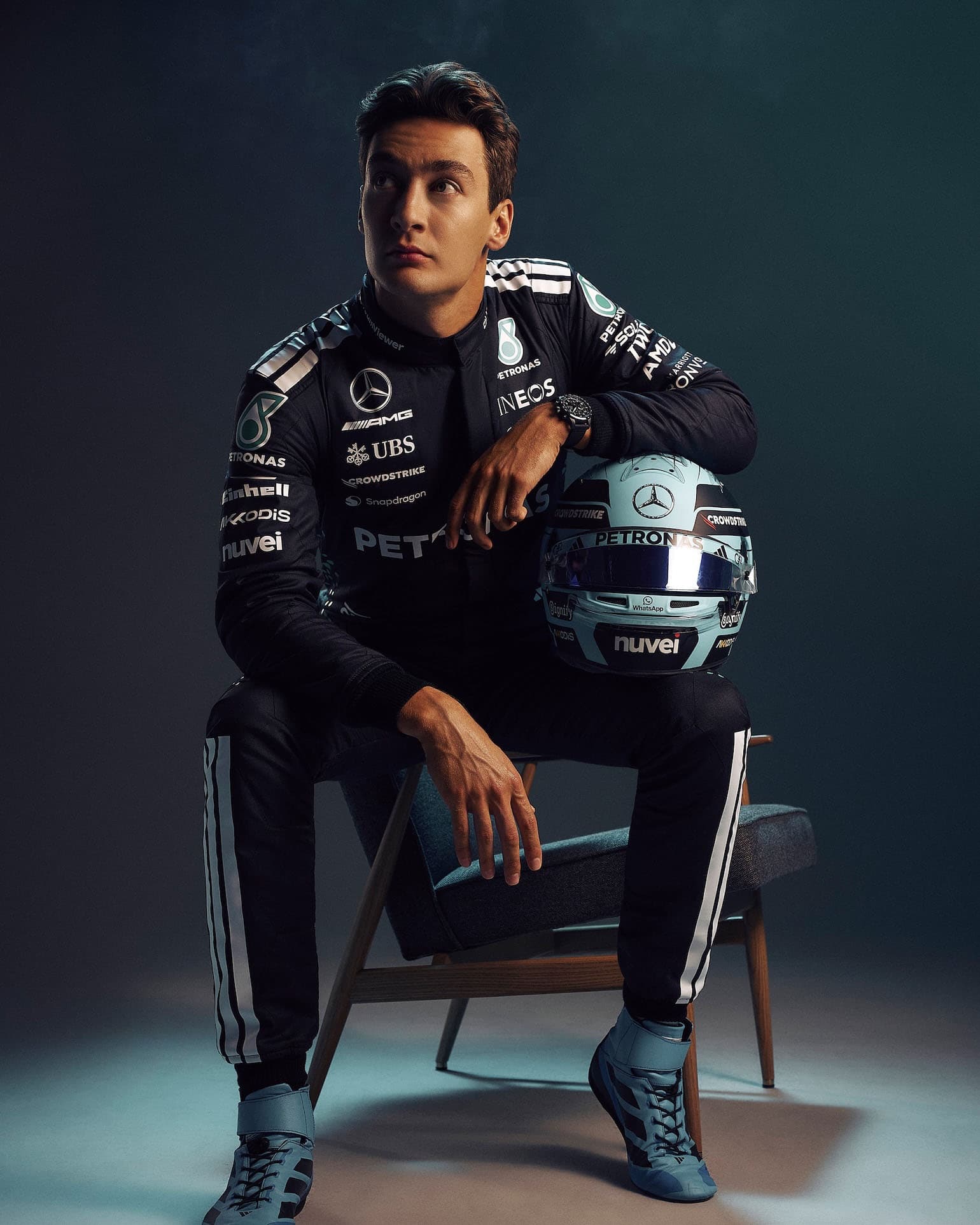
SB: And what about the unique experiences Marriott Bonvoy has crafted for you along the way?
GR: [My girlfriend] Carmen and I were so lucky to go to the Cayman Islands earlier this year, staying at The Ritz-Carlton, Grand Cayman. We experienced some incredible things, like swimming with turtles and stingrays. I think living this lifestyle, having those small opportunities to do something that I never would have done ordinarily, makes the whole experience a bit more special. We know with Marriott Bonvoy, we’re always going to be in good hands.
SB: Is it in these moments that you feel you’re able to truly disconnect?
GR: 100%. I can disconnect from the craziness of Formula 1, and that’s something so important for us, to psychologically disconnect from the work, the passion. To have this reset, when I come back into that world, I feel even more motivated and even more driven to succeed. Obviously, you can’t be on holiday all of the time, but finding the right amount of time, the right destinations, the right hotel or experience to go and disconnect – even just for half a day – can get me back on track. It’s really vital for my own performance.
SB: From visiting so many incredible countries and immersing yourself in the richness of different cultures, how would you say that these experiences have shaped you as an individual?
GR: I’ve changed a lot since gaining the experience of worldwide travel. It really opens up my mind to how people are brought up in different parts of the world and the lessons they have learned. We talk so much in life and business about diversity and inclusion and the importance of that. Through my own experiences, these different cultures have so much to add when you collectively come together, especially within the world of Formula 1. And I think that’s one of the extraordinary things with Formula 1: we get to experience all of these different cultures and how life is in different parts of the world. It makes you think about how you can improve.
SB: As you mentioned. Formula 1 is everywhere these days. The community is at its biggest, and there are so many facets of it that are documented and shared with the world. Through all of this, and what we see of the sport, what do you think would truly surprise people the most about the sport?
GR: It’s a good question and a challenging one, because as you say, so many parts of it are documented. But I think what you see on a Sunday afternoon is only the very tip of the iceberg. It’s pretty relentless, but ultimately, we live our dream. So, is the world of Formula 1 tough? Yes and no, because I’m doing what I love, and I know all of these aspects of the job are mentally important in what we do. They drive you further.
